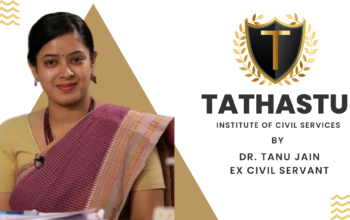One of India’s most challenging and most prestigious tests is the Union Public Service Commission (UPSC) examination. Aspirants need to meet certain UPSC CSE eligibility criteria to appear for the exam. Candidates must graduate from a recognized university. The minimum and maximum CSE exam age limit for the General Category is 21 years and 32 years, while there are certain relaxations in age for OBC and SC/ST categories for the maximum age.
For several reasons, thousands of students prefer self-study rather than coaching from anywhere. So, if you are also from one of those, we’ve brought the strategies that help prepare you for the UPSC examination from your home. With these strategies, you would not feel the lack of coachings, and you would be able to stay motivated to prepare for the exam by yourself.
Table of Contents:
Suggestions for UPSC Candidates on Self-Study
What Are the Steps to Follow for Self Study?
- Make a Study Schedule
- Use Study Resources
- Make Reading a Habit
- Make a Note
- Practice Papers from Previous Years
- Management of Time
- Avoid Putting Things Off
- Stay Inspired
- Enjoy Breaks
- Use Technology for Education
- Review Is Crucial
- Attend Study Sessions
- Stay Current
What Are the Steps to Follow for Self Study?
Thousands of candidates appear for the exam every year, but only a select handful are successful. Self-study is an essential part of UPSC preparation; having a clear plan can help you succeed. We’ll give UPSC hopefuls some self-study advice that might help them get ready for the exam more effectively.
● Make a Study Schedule
A study plan is one of the most crucial steps in UPSC preparation. A study plan aids aspirants in time management, setting priorities for their studies, and maintaining concentration. It is essential to come up with a realistic and doable study strategy. An agenda for daily, weekly, and monthly study sessions should be included. The number of hours to be spent studying, the topics to be covered, and breaks should all be included in the daily program.
● Use Study Resources
There are a tonne of study resources accessible for the UPSC. It’s crucial to pick study resources that are appropriate for the test. The study materials must be thorough, simple to comprehend, and current. Newspapers, journals, online resources, coaching materials, and NCERT books are a few of the widely used study resources for UPSC preparation. Candidates should select study materials based on their preferred pace and learning method.
● Make Reading a Habit
A key component of UPSC preparation is reading. The habit of reading daily newspapers, magazines, and books should be formed by aspirants. Aspirants who read regularly stay informed about current events, develop their cognitive abilities, and broaden their knowledge. Reading from reputable sources is crucial, as is making notes on significant subjects.
● Make a Note
Taking notes is a crucial part of preparing for the UPSC. During reading, in class, and when viewing videos, aspirants should take notes. Messages should be well-structured, unambiguous, and brief. Aspirants who use letters can revise more rapidly, remember critical details, and retain information. It is crucial to update and evaluate notes on a regular basis.
● Practice Papers from Previous Years
The adage “practice makes perfect” is applicable to UPSC preparation. Candidates should routinely practise the prior year’s exams. A candidate’s understanding of the exam format, identification of their strengths and limitations, and development of time management skills are all aided by practising the previous year’s papers. It is crucial to examine and correct any errors committed when practising using the prior year’s reports.
● Management of Time
The UPSC preparation process requires effective time management. Candidates should properly and efficiently manage their time. Making a study plan, setting priorities, taking breaks, and avoiding procrastination are all examples of time management. Setting out time for each subject and regularly reviewing is critical.
● Avoid Putting Things Off
Time is stolen by procrastination, which can make UPSC preparation difficult. Candidates should act with urgency and refrain from putting things off. Students should put their studies first and stay away from temptations like social media, TV, and mobile devices. It is crucial to maintain discipline in your study habits and your level of concentration.
● Stay Inspired
It’s essential to maintain motivation during the difficult and gruelling UPSC preparation process. Candidates ought to have a positive outlook, set reasonable goals, and reward themselves when they reach milestones. It is crucial to have a network of supporters, such as family, friends, and mentors, who can offer inspiration and direction.
● Enjoy Breaks
A crucial component of UPSC preparation is taking breaks. To prevent weariness and burnout, aspirants should take brief pauses during their study sessions. Breaks aid in mental renewal, increased output, and less stress.
● Use Technology for Education
Technology has transformed education, and it can help with UPSC preparation and meet UPSC CSE eligibility criteria. Candidates can learn via online resources like websites, apps, and videos. Students can also participate in online forums and study groups where they can ask questions and get answers.
● Review Is Crucial
A key component of UPSC preparation is revision. To retain knowledge and recollect key details, aspirants should routinely revise. Reviewing your notes, practising with old papers, and taking practice exams are all part of revision. Setting up time for review is crucial, and cramming should be avoided.
● Attend Study Sessions
Being involved in a study group might help you learn and become ready for the UPSC. Study groups give participants the chance to exchange notes and resources, clear up any questions, and receive feedback. According to their preference, aspirants can join offline or online study groups.
● Stay Current
Keeping up with current events is a crucial part of UPSC preparation. Daily publications, news networks, and the use of trustworthy information sources are all recommended for aspirants.
Conclusion
An organised and disciplined study strategy is necessary for UPSC preparation. Self-study is an essential component of UPSC preparation, and candidates should have a plan in place. The UPSC Eligibility Criteria 2023 includes parameters such as nationality, educational qualifications, age limit, number of attempts, and other essential requirements that a candidate needs to fulfil to apply for the UPSC Civil Services Examination.
The self-study advice provided in this article can aid candidates in their exam preparation. Maintaining one’s drive, being current, and caring for one’s health and well-being is crucial.
FAQs
Q1. Do I Need Tutoring to Prepare for the UPSC?
A1. Coaching is not required, although it can be beneficial for UPSC preparation. Candidates have the option of preparing independently or with coaching. Yet, it is crucial to pick the best coaching program that offers top-notch advice and resources.
Q2. How Can I Properly Manage My Time for UPSC Preparation?
A2. Effective time management is crucial for UPSC prep. Candidates should make a study schedule, set priorities, take breaks, and refrain from putting off work. Setting out time for each subject and regularly reviewing is key.
Q3: How Can I Maintain Motivation While Studying for the UPSC?
A3. UPSC preparation might be difficult. Thus, it’s important to maintain motivation. Candidates ought to have a positive outlook, set reasonable goals, and reward themselves when they reach milestones. They must also have a network of allies.




